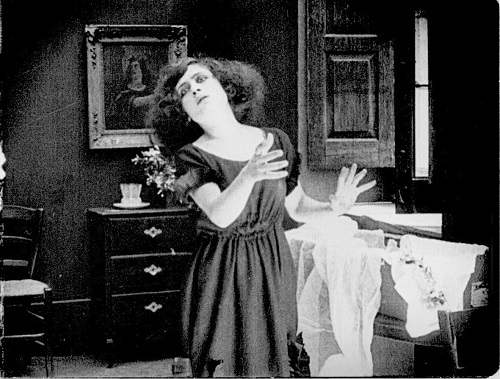Elvira Notari, Italy’s First Female Filmmaker
TORONTO – Few may know the name of Italy’s first filmmaker, but his legacy has long been preserved. Vittorio Calcina, photographer by trade from Turin, was an associate of Auguste and Louis Lumières, the pioneering French filmmakers and inventors of the early film camera (the Cinematographe). But unlike Calvina’s well documented history, Elvira Notari’s story – as Italy’s first female filmmaker – remains largely untold. Until now.
Filmmaker Valerio Ciriaci has just launched his retrospective documentary on Elvira Notari in the Venice Classics section of this year’s Biennale, which is currently underway. Titled “Elvira Notari: Beyond Silence”, the film explores Notari’s little-known works, despite having created/produced 60 silent films. Three of the sixty remain intact while only fragments of others survived.
“She slipped into silence and most of her work was lost. Today, 150 years after her birth, Elvira returns to center stage thanks to the efforts of scholars reclaiming her place in history”, said Ciriaci. Though Notari catered her films to Neapolitan audiences, she also sent them across Little Italy suburbs in America between 1906 and 1930.
“I first came across Elvira Notari’s story a few years ago in New York, while working on a documentary about an Italian showman who had emigrated to the U.S., and the Italian audiences that packed American cinemas in the early 20th century.
Among the most requested films by the Italian-American community were silent Neapolitan productions, especially those from Dora Film, a small family-run company headed by Elvira Notari herself”, explains Ciriaci. Dora Film was Notari’s production house, named after her youngest child, and started as a photo lab in 1905 with her husband Nicola. But by 1912 the family-run business had become a full-fledged Film Production House. The operation wasn’t just close to home. It was their home.
Notaris had a stage set built at their home, named Teatro di Posa, in the Ponti Rossi section of Naples. In addition, she opened an acting school for budding non-professionals in a neighbouring apartment.
“From Naples to the world, Elvira’s legacy as a silent cinema pioneer carries an urgency born of everyday life, of voices once overlooked,” says Producer Antonella Di Nocera.
“This film is our way of restoring her to history and showing why her vision matters now”. Notari’s films echoed the sentiments of her contemporary and fellow middle-class woman, marked by relatable social settings and references to pop culture.
Notari’s work not only competed with the big budget fare coming out of Rome and Turin, but found American audiences at a time when Hollywood was taking over the global market. Her legacy and contribution to film should not only be acknowledged, but endure for years to come.
Images
Massimo Volpe is a filmmaker and freelance writer from Toronto: he writes reviews of Italian films/content on Netflix





